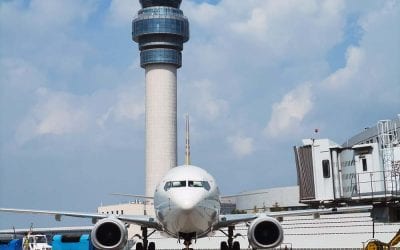As we come into the holiday season, when the spirit of giving spreads across the world, airlines are doing all of the taking. Stories about the airlines taking space from their passengers in order to squeeze in more seats on each plane have been printed in paper after paper. Stories about new ancillary fees are becoming normal. And, airfares creeping ever upwards are now taken for granted.
Now, international legacy airlines are even begrudging the very government that bailed them out after 9/11, approved their pleas for consolidation through mergers, allowed international antitrust immunity, supported their claims of full transparency, and more, with audacious plans to dodge US taxes.
Even worse, the airline grinches are now enjoying an unprecedented collapse of oil prices that together with collusive practices of capacity discipline are creating record profits for the entire industry. Even with these record profits and falling fuel prices, airfares are not falling commensurately.
With tens of billions in losses from more than a decade of unprofitable operations, airlines will be legitimately income-tax-proof for the coming couple of years or so, even with the record profits the airlines are racking up.
Net operating losses from the bad years, called “carryforwards,” allow airlines and other companies to offset the cash tax burdens from their current profits. Delta Air Lines, for example, will end 2014 with $12.4 billion in prior losses on the books, offsetting its cash outlay for taxes. American had about $10.6 billion following its departure from bankruptcy and merger with US Airways a year ago, and United’s most recent report claimed about $11 billion in leftover tax offsets.
But, the mega airlines are already making plans to shift their most lucrative international joint venture profits overseas to avoid US taxation.
Delta told investors last week that it expects to face a cash tax bill in 2017 for part of that year’s income.
At the same time, however, Delta Chief Executive Richard Anderson praised as “very prescient” an analyst’s question about how the airline might reduce its future tax expense, promising that his airline was “all over” a tax strategy. It seems likely that the U.K. and the Netherlands — with corporate tax rates of 21 percent and 25 percent, respectively — could play a role in that effort. Delta, Air France-KLM, and Alitalia have a joint venture for their flights across the Atlantic, which allows the four carriers to coordinate routes and fares. The Amsterdam-based venture, which is not subject to antitrust prosecution, carried 17 million passengers last year and had $13 billion in sales. Delta also owns a 49 percent stake in Virgin Atlantic Airways. Those two carriers have since formed a joint venture for their U.S.-London business.
This future US tax-avoidance strategy by Delta is obviously being examined by American Airlines that has an airline alliance agreement with British Airways and Iberia Airlines that provide European tax havens vis-a-vis US corporate tax rates. And, United Airlines has similar legal arrangements that protect the entity from antitrust rules and regulations with Lufthansa Airlines and its subsidiaries in Europe.
The accounting and taxation departments in every major airline are looking at how to avoid the coming taxes once their loss carryforwards run out.
In the meantime, all other taxes seem to be being paid by the passengers.
Travelers pay the 7.5 percent air transportation excise tax on every penny of airfare. Passengers pay the passenger facilities tax (PFC) whenever a plane stops at an airport. Travelers pay the $5.50 TSA 9/11 security tax whenever they go through airport security checkpoints; airlines, by the way, don’t pay a dime. International passengers also pay Customs and Border Protection fees plus Agriculture fees whenever they land from an international flight; rail and auto passengers get their clearances for free.
Investors may be “pleased,” according to a Bloomberg analysis. However, consumers who are facing higher prices and reduced service as well as footing the entire bill for taxes in the USA should be up in arms. And, their representatives should be as well as they are asked to approve massive investments in new air traffic control systems and airport construction.

Charlie Leocha is the President of Travelers United. He has been working in Washington, DC, for the past 14 years with Congress, the Department of Transportation, and industry stakeholders on travel issues. He was the first consumer representative to the Advisory Committee for Aviation Consumer Protections appointed by the Secretary of Transportation from 2012 through 2018.


